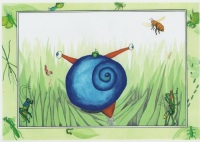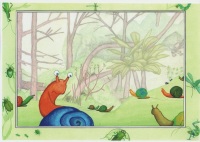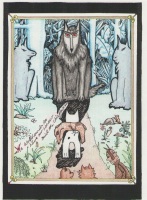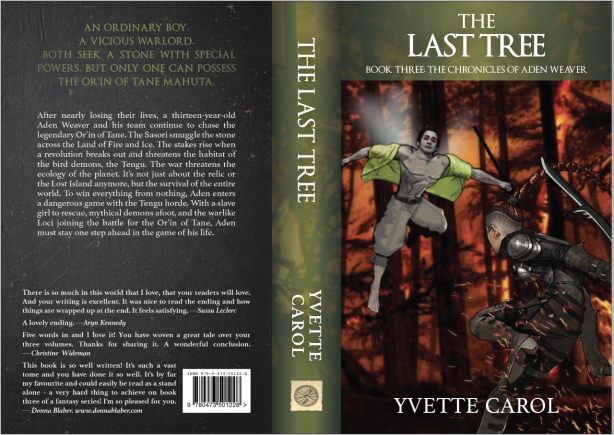For the last month, I’ve been working on a sixth speech for Toastmasters. Then, at a competition the other night, I listened to a speech titled, ‘What is a Story?’ which focused solely on the endings. I like a good finish; I marshalled a few thoughts on the subject here a few weeks ago in a post called, The True End.

However, as my nephew sagely said, ‘A story has to have a good beginning, or I’d never read past the first pages!’
Excellent beginnings, it could be argued, are nearly more important than good endings.
I decided to change the subject of my speech and scrapped what I had been working on in favour of this question, ‘what is a story?’
My challenge was to write a speech about this vast subject and make it fit within 5-7 minutes. Talk about editing! I delivered my riposte at Toastmasters this week.

‘What is a story? 2’
Madam President, fellow members and guests,
I went along to the International Speech Contest last week. One of the speakers I’ll never forget – John LeRoy – because of his choice of subject matter: his speech was titled, ‘What is a story?’
I thought, Great. Can’t wait to hear this.
John’s presentation was very interesting; he delivered it with action sequences. He also had that all-important swagger. Therefore, he deserved second place. John was technically brilliant, except he focused solely on the endings.
“Mr. LeRoy, what a great speech,” I said, shaking his hand. When what I really wanted to do was grab John by his neatly-pressed lapels and say, “Stories are about more than just the endings!”
If I may, I’d like to answer the question posed.
There’s far more to a story than the ending. For a start, it also has a beginning… and middle! And, it’s more than the sum of its parts.
In this talk I’d like to start with the some of the obvious traits and move onto the not-so obvious elements of fiction.
Best-selling Kiwi author, Brian Falkner said story stands for:
S – setting
T – the characters
O – obstacles
R – reach
Y – your goal
Setting provides flavour, whether it be a deserted island or on the moon. The setting gives readers framework for the adventure, and a sense of place.
The Characters. We are social animals, we like to believe in and relate to the characters.
Obstacles. No conflict, no story, or so they say. It has to have tension.
Reach. Reaching is something brave people do. Heroes. We like to read about extraordinary people doing extraordinary things. We’ve been talking about heroes since the first proto-humans told tales around the fire in their caves.
Your goal. The goal set up for the characters in the beginning must be won or resolved in some fashion by the end. Anton Chekhov said the gun that hangs over the fireplace in the first scene has to be fired by the last. The questions raised must be answered. Or as David Farland put it, Pay off! Pay off! Pay off!
Yes, the mechanics of story, the beginning, the middle, the end, the characters, the obstacles – all these elements need to be there.
And yet, it is about far more than mere mechanics!
Here’s where we move onto the not-so obvious aspects of story.
A book can be technically brilliant and yet fail to capture the imagination of the reader. Readers are seeking something else. There’s a universal need to seek an experience, an escape, a deliverance from the ordinary and every day.
Authors have addressed this in many ways.
‘A good story should alter you in some way; it should change your thinking, your feeling, your psyche, or the way you look at things,’ wrote Allen Say.
Frances Buffet once described fiction as, ‘The Hope that Books Built.’
‘Interesting anecdotes are not fiction by themselves. They need the sandpaper touch of art,’ wrote Jane Yolen.
Why?
Because good fiction takes us beyond the mechanics of beginnings and endings, obstacles and setting, although they need those as well.
Stories tell us that our lives transcend possibilities. Which is after all, what art does.
As acclaimed Kiwi author Kate de Goldi said, ‘we remember readings that acted like transformations.’
What is a story? I have given you one answer and yet, this is still only the beginning of the story!
+
“How to do it” will never create an Art. It will never shake the old skin, it will never get us out of here.” ~ Charles Bukowski.
Tell me, I’d love to know your view, what is a story?

Talk to you later.
Keep on Creating!
Yvette K. Carol
+
See my dress rehearsal video on YouTube. https://youtu.be/5BPNX2PZi9o
The confidence that comes from speaking in front of an audience is magical – it permeates our whole being. ~ George Yen
After nourishment, shelter and companionship, stories are the thing we need most in the world. ~ Philip Pullman
+
Subscribe to my Newsletter by emailing me with “Newsletter Subscription” in the subject line to: yvettecarol@hotmail.com
















A story has to be greater than the sum of its parts. That’s my view. 😉 I can understand why that other person’s speech bothered you.
LikeLiked by 1 person
Yes. Thank you! I knew you’d get it, Tee 🙂
LikeLiked by 1 person
A good rebuttal Yvette.
xxx Huge Hugs xxx
LikeLiked by 1 person
Thanks, David. I’m glad you liked it!
Here’s a big hug right back 🙂
LikeLiked by 1 person
I definitely prefer your answer to the question to one that focuses exclusively on endings.
LikeLiked by 1 person
Thanks, man 🙂
LikeLiked by 1 person
What is a story? Yvette, this is one of the eternal questions. I love it. Each of our answers may reflect where we’re at. Scary thought, because now i’m about to tell you what I think. Okay, this is a little strange, but here goes: “Everything about the status quo is a lie. And a story depicts the truth.” How’s that? Our main character represents the status quo (lies and delusions) at the beginning of the story, and his trajectory is inevitably toward an escape therefrom. Of course, sometimes they don’t make it. Tragedies are no less telling. Maybe more so, and perhaps more real.
Re. endings — I was reading how a young child instinctively knows when a story is a story because he or she recognizes an ending. A long sequence of events doesn’t necessarily make a story because the child will keep asking, “And then what happened?” But when the plot’s elements resolve, they know it. Someone should write a thesis about this.
I’d like to write a book called “What Is a Story?” It would include a long list of hypotheses. But if the human condition were not taken into consideration at the outset, I don’t think the answer can be true. What is the human condition? A marvelously workable matrix of delusions and lies. No wonder our lives are a house of cards, and no wonder stories and drama are so universally popular.
~ PJ
LikeLiked by 1 person
Hi, PJ!
No wonder, indeed.
Thanks for making it over. I’m thrilled and honoured to have you here. 🙂
Thinking you might read this speech I thought, I haven’t dived into the subject nearly deeply enough for PJ! Yet, I hoped you’d give us some of your view, and you did. Brilliant.
I’m always moved by how solid and real your views are on fiction. I don’t find them “strange” at all.
In fact, I’ll quote you on that one, because there is a universe packed into this one line: “Everything about the status quo is a lie. And a story depicts the truth.”
You go straight for the jugular. 🙂
That’s intriguing about the way a child perceives a story. I have also read that children instinctively know the shape of a story. They know when something’s left out, too. It makes sense they would also resonate with the tying up of loose ends and unanswered questions that signify the end. Cool, huh? It’s definitely a subject worthy of exploring. Maybe you should write the thesis?
My greatest takeaway from this “conversation” has been this idea of story being “the truth.” Imagine for children, coming up in this world of lies, how extremely important are stories. They’re a lifeline to reality.
Cheers! 🙂
LikeLike
Yvette, I just watched the video and must say that you have your own swagger and it is awesome.
LikeLiked by 1 person
I second that — swagger and style and pace and to the point and vocal variety and body language — you’ve got it all, Yvette. Congrats.
LikeLiked by 1 person
😀
LikeLiked by 1 person
Thanks! That means a lot!
🙂
LikeLike
You think? Thanks for the vote of confidence, Clare! 🙂
LikeLiked by 1 person
I know! You’re welcome.
LikeLiked by 1 person